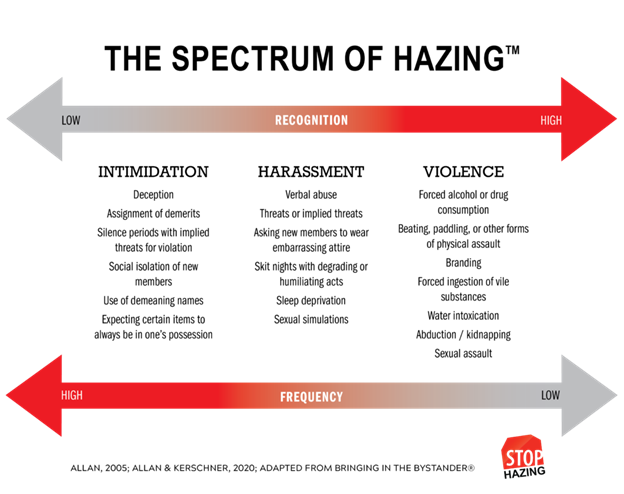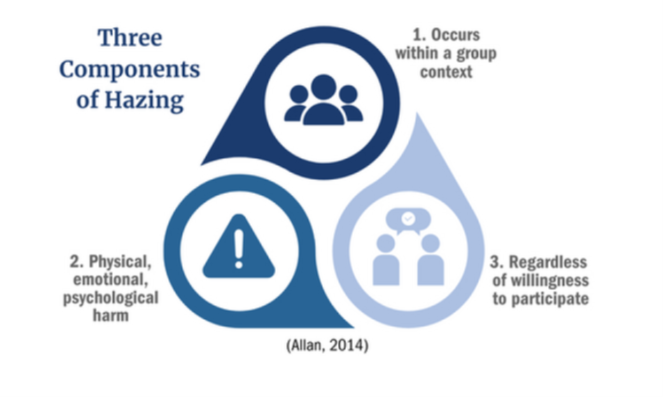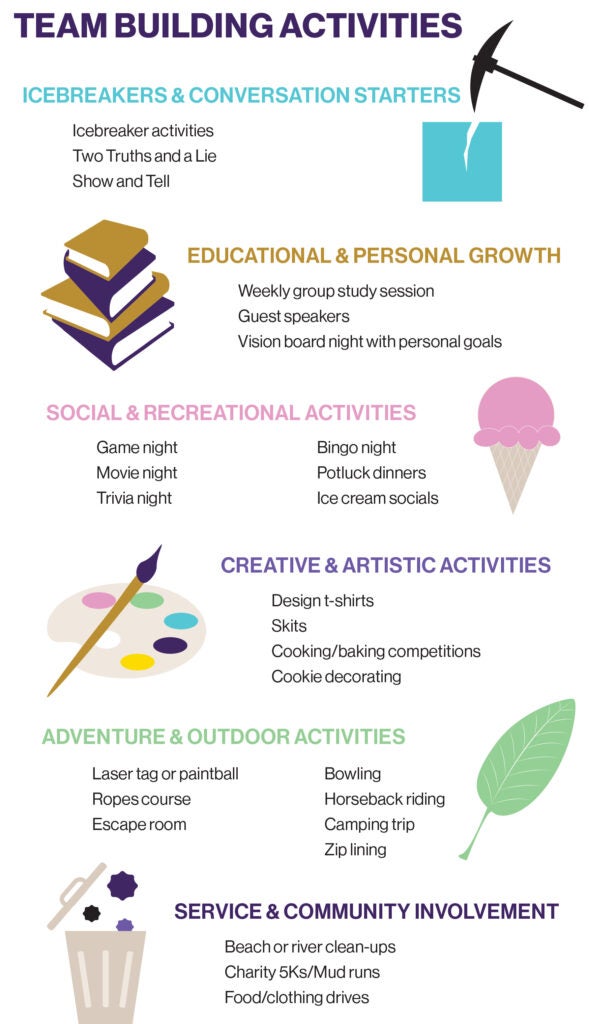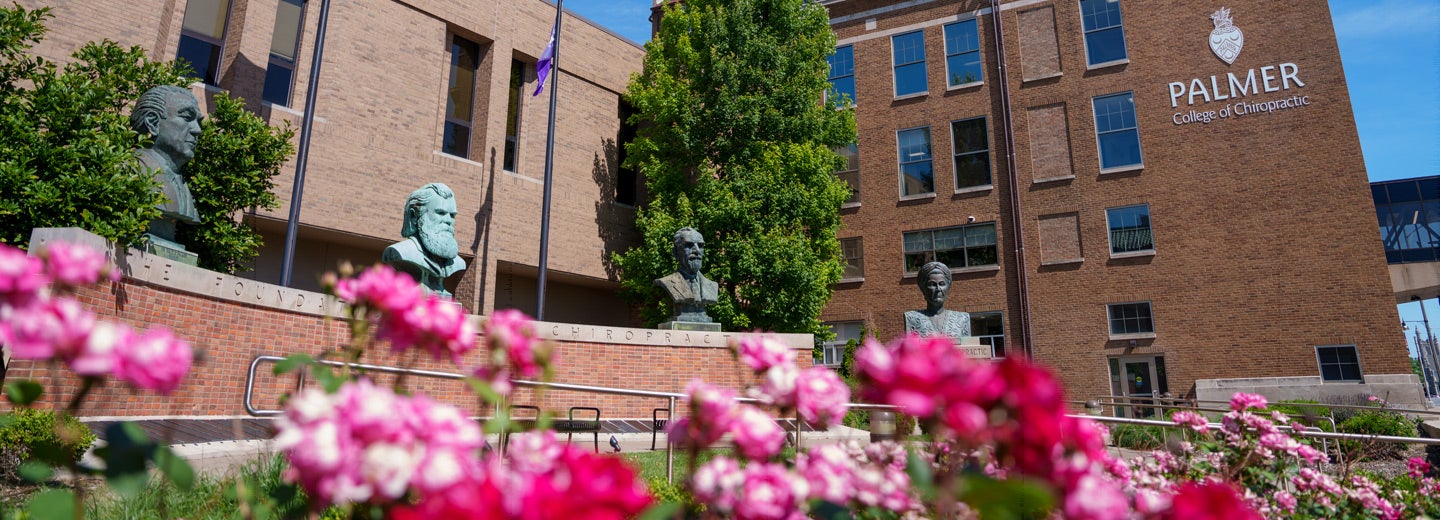Palmer College is committed to providing a safe and respectful environment for all members of the College community. Therefore, hazing will not be tolerated by any student club, organization or individual affiliated with the College.
Hazing includes any act that endangers the mental, physical, or emotional health or safety of an individual for the purpose of initiation, admission into, affiliation with, participation in or as a condition for continued membership in any club or organization. This includes activities either presented as optional or required and with or without consent of the participating individual.
Hazing Prevention and Awareness Policy
Hazing
Definitions
College Definition:
The term “hazing” refers to a reckless or intentional act that is an explicit or implicit condition for initiation to, admission into, affiliation with, participation in, or continued membership in any group or organization. This includes any activity, whether it is presented as optional or required.
- Hazing is a broad term encompassing any action or activity, which does not contribute to the positive development of a person; which inflicts or intends to cause physical or mental harm or anxieties; and/or which demeans, degrades or disgraces any person regardless of location, intent or consent of participants.
- Hazing includes any mental or physical requirement, request or obligation placed upon any person (pledge, new member, associate member, member, affiliate, guest), which could cause discomfort, pain, fright, disgrace, humiliation, embarrassment, injury or which is personally degrading or which violates any federal, state, local statute or college policy or rule. Any activity described in the definition of this Policy upon which the initiation, or admission into, or affiliation with, or continued membership in an organization is directly or indirectly conditional, shall be presumed to be “forced” activity.

State Definitions
State of Iowa Code 708.10 Hazing
Three Components to Hazing:

CONSENT IS NOT A DEFENSE
Prohibited Conduct and Activities
The College strictly prohibits individually or collectively authorizing, forcing, requiring, directing, coordinating, pressuring, encouraging, endorsing, observing, supporting, tolerating, causing, coercing, or otherwise inducing any form of hazing whether real or simulated and regardless of a person’s willingness. Examples include, but are not limited to, any conduct or activity that:
- Causes or creates a risk of physical or psychological harm or injury above the reasonable risk encountered in the course of participation in the College’s programs/activities or the organization.
- Involves physical abuse in any form or quantity:
a. Pushing, shoving, punching, whipping, beating, striking, tackling, electronic shocking, paddling or any other physical abuse,
b. Forced consumption of food, liquids, alcohol or other substances in any form or quantity; or providing such alcohol or other substance,
c. Unauthorized or illegal use of drugs or alcohol in any form or quantity,
d. Throwing anything (garbage, water, paint, etc.) at an individual,
e. Forced or required calisthenics (sit-ups, push-ups, burpees, squats, runs, etc.);
f. Branding or tattooing,
g. Nudity or exposure to the elements at any time,
h. Sleep deprivation (less than six consecutive hours of sleep each night),
i. Scheduling or conducting activities during unreasonable hours (between 12:00 midnight and 7 a.m.) or awakening individuals during these hours.
3. Involves psychological abuse in any form or quantity.
a. Any activity or conduct that places another person in reasonable fear of bodily harm through the use of threatening words or conduct,
b. Conducting activities designed to deceive or convince individuals that they will not be initiated, maintained, or will be hurt,
c. Humiliating, embarrassing, disgracing or degrading individuals in any way,
d. Yelling, screaming or calling individuals demeaning names,
e. Not permitting individuals to speak for extended periods of time and/or forced exclusion from social contact,
f. Confinement to a small space,
g. Servitude of any nature (food runs, personal errands, academic work, etc.).
4. Prevents any person from practicing personal hygiene.
5. Interferes with an individual’s educational pursuits.
a. Conducting activities which do not allow adequate time for study, class attendance, preparation, study time, etc.
b. Performing academic work for others or otherwise engaging in or assisting others in committing academic misconduct.
6. Involves theft, defacement or destruction of private or public property.
7. Involves public or private stunts, pranks, buffoonery, conspicuous or distasteful public displays, greetings or other similar activities.
a. Unauthorized scavenger hunts, treasure hunts, quests, road trips, paddle hunts, big brother/little brother hunts, big sister/little sister hunts,
b. Unauthorized activities which involve compelling an individual or group of individuals to remain at a certain location or transporting anyone anywhere (road trips, kidnaps, sneaks, drops, etc.),
c. Stealing, relocating or displacing composites, trophies, mascots, etc.,
d. Carrying of any items (paddles, bricks, rocks, pocket change, dog collars, signature books, etc.),
e. Unauthorized line-ups of any nature,
f. Requiring individuals to walk or march in formation of any kind,
g. Publicly wearing apparel which is conspicuous and not normally in good taste (uniforms, head apparel, boots/shoes, etc.).
8. Violates or involves activity against another person that violates local, State, Tribal, Federal law or College policy.
Prevention and Training
Current Prevention Initiatives
New Student Orientation Training – Training each trimester for new incoming students.
Annual Awareness and Prevention Training – On-line annual training course on hazing awareness, prevention, intervention and the College’s Hazing policy that is completed by students and employees.
Student Leader Hazing Awareness and Prevention Training – Additional annual training required by all students that hold leadership positions in any of the College’s clubs and/or organizations.
Faculty Advisor for Clubs/Organizations Awareness and Prevention Training – Additional annual training required by all students that hold leadership positions in any of the College’s clubs and/or organizations.
Experience Palmer Event – Every trimester, information regarding hazing, prevention and bystander intervention is provided to the College community during the Experience Palmer event that is open to all students and employees.
Hazing Prevention Week – The College participates in the national Hazing Prevention Week that takes place every September by providing programming around hazing prevention, education and awareness for students and employees.
Bystander Information
Any situation in which a person observes or hears about hazing and takes steps to support and/or prevent potential harm to those involved or to themselves is known as “bystander intervention” (Berkowitz, 2009; Stapleton & Allan, 2014).
The following 5 steps can help you become an empowered bystander.

- Notice Hazing
Once you understand the definition of hazing you will be better able to identify whether hazing could be occurring in a student club and/or organization. Please refer to the Hazing Definitions and Examples tab on this page to learn how to identify hazing. - Interpret the Behavior as a Problem
Once you recognize hazing behavior it is important to acknowledge the behavior is problematic and needs to be addressed. - Accept Responsibility to Intervene
Once hazing behavior has been recognized, individuals must accept personal responsibility for intervention.Diffusion of Responsibility – this occurs when individuals in a group setting do not take action because they believe someone else will intervene. This allows the hazing to continue even when members have identified the behaviors as wrong.
- Intervening Safely
- Shift the focus – redirect attention from the person being hazed towards something else. (i.e., refuse to engage in the behavior, change the subject)
- Safely confronting – confronting the hazing directly by letting others know you will not participate in hazing. Encourage others to not participate and discourage those who are carrying out or planning the hazing behaviors)
- Shifting attitudes – de-normalize acts of hazing. (i.e., challenging misconceptions about “harmless” hazing behaviors and “traditions”, support those experiencing hazing)
- Documenting the behavior – report the hazing behavior with the College with Reporting Form.
- Take Action
After directly or indirectly taking action, check in on the affected parties and refer them to speak to the Office of Compliance regarding reporting information and available resources.
Team Building Activities
Below are positive strategies for achieving group unity.

Reporting
Resources
Student Academic Support Services
External Resources:
National Anti-Hazing Hotline: (888) 668-4293 or (888) NOT-HAZE
Campus Hazing Transparency Report
As required by the Stop Campus Hazing Act, the College is required to publish a report of any hazing violations by any of the College’s student clubs and organizations.
The report must include:
- Name of the student club/organization
- Description of the violation
- Findings of the College
- Sanctions placed on the club/organization or students
- Date of the Incident
- Date Investigation initiated
- Date Investigation ended
- Date College notified club/organization of outcome
The report shall exclude all personal or identifying information of individual students and will adhere to the provisions of the Family Educational Rights and Privacy Act (FERPA). It must document all hazing violations occurring within the previous five-year period and be updated biannually.
The College also includes College hazing statistics in the College’s Annual Security and Fire Safety report. Refer to the Hazing Violations tabs to review the Hazing Transparency Report for each calendar year.
Hazing Violations 2025 Calendar Year
| Club/Org Name | Not Applicable (N/A) |
| Hazing Incident Dates | N/A |
| Date Reported | N/A |
| Investigation Dates | N/A |
| Description of Violation | There were no student organizations found responsible for a hazing violation during this reporting period. |
| Alcohol or Drugs Involved? | N/A |
| Findings & Sanctions | No sanctions were imposed as no violations were found. |
| Date College notified club/organization of outcome | N/A |

